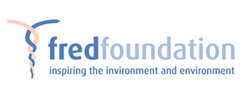Ban of toxic softeners in PVC toys extended
Great news from the European Council and Parliament
28.09.2004 |Sascha Gabizon
It is a pity that industry is not voluntarily taking such important
actions to help protect the health of our children. Instead, toy
manufacturers are especially angry about the ban on DNIP, the most
widely used toy plasticiser. DNIP is a widely used plasticicer and is
found in many daily use products, including cosmetics.
Unfortunately, the ban is not yet operational.
AND IT DOES ONLY APPLY TO MEMBERS OF THE EUROPEAN UNION, not to NIS countries.
So we still have to continue to avoid plastic toys as much as we can!
Find out more about health and chemicals in the Health Working Goup of WECF.
THE GREENS/EFA IN THE EUROPEAN PARLIAMENT
PRESS RELEASE Brussels, 24 September 2004
Ban of toxic softeners in PVC toys extended
The beginning of the end for soft PVC
The Greens/EFA in the European Parliament welcomed today's long
overdue agreement by the Competitiveness Council to phase out the use of six phthalate-softeners in soft PVC toys. Three phthalates, which are classified as toxic to reproduction, are to be banned for use in all PVC toys. Three other phthalates, which are amongst others
toxic to the liver, are to be banned for use in toys intended for children under three years of age and which can be put into their mouths.
In 1999, after two years of heavy lobbying, the EU adopted an emergency ban on the same six phthalates, but only in toys intendedfor children's mouths. A complementary proposal for a permanent measure on all toys for children under three was blocked in the Council for another five years until today with the Netherlands and the UK having long spearheaded the opposition to a ban.
Jill Evans, Plaid Cymru MEP for Wales and member of the Environment Committee, said: "I congratulate the Dutch Presidency for having brokered the deal reached today. The agreement from Council which was unanimous to phase out toxic softeners in PVC toys is long overdue. It is all the more remarkable as the Dutch, together with the UK, were once the fiercest opponents to a ban, mainly due to the massive pressure exerted on them by Exxon Chemicals. I am relieved that they finally decided to prioritise children's health above an industry that had and still has! no problems with letting babies suck on toxic substances."
"I hope that this saga will teach European Competitiveness Ministers a profound lesson in advance of the REACH revision of chemicals legislation: if you are serious about protecting children's health, you cannot rely on the Exxons, BASFs and Atofinas of this world to cooperate. The European and American chemicals trade associations tried until the very last moment to revent the adoption of the ban for the one phthalate they want to continue to use in toys. These chemical giants only care about one thing: their profits! Europe's Competitiveness Ministers must continue to stand up to industry pressure when it comes to REACH. If they don't, our children will pay the price with their health for many decades to come."
Hiltrud Breyer, German Green member of the Environment Committee added: "Phthalates in soft PVC toys are just the tip of the iceberg. If the European Commission and EU Member States are serious about wanting to protect human health against toxic phthalates, the fight has only just begun. The Greens/EFA in the European Parliament call on the European Commission to build on this prohibition and to immediately present a phase-out of soft PVC
products, in particular for medical devices, for which alternatives
are available."
"Phthalates are the partner in crime of PVC, and soft PVC is virtually everywhere. We are surrounded by soft PVC on all sides. It is used for flooring, wall covering, insulation and roofing.
We sit on it in inflatable swimming pools and other swimming gear,
we walk on it in our shoes, and we get it straight into our body via
medical devices. Soft PVC products are an omnipresent source of exposure to hazardous softeners."
[Ends]
Notes to editors: Total production of phthalates is approximately one million tonnes a year, with around 90% of it used to soften PVC. Total use of phthalates in soft PVC toys accounts for less than 1%. A standard soft PVC product contains between 10-40% of phthalates. Phthalates are not chemically bound to PVC, so they are readily released over time. The main phthalate DEHP, with an annual production volume of 500,000 tonnes, is officially classified as toxic to reproduction.


































